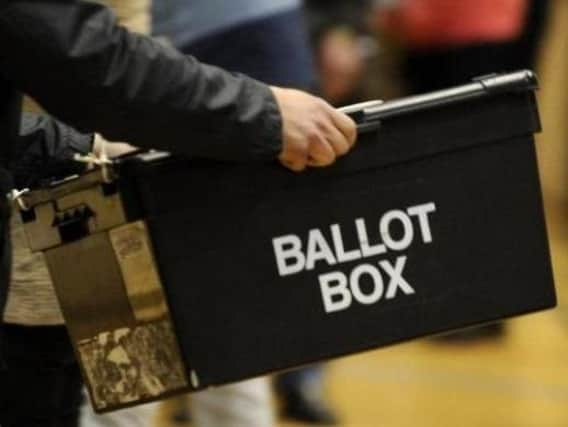Elections are 'vulnerable to fraud' and photo ID checks could 'improve security'


The government is planning to pass a law that would require people to provide photographic identification at the polls before they receive a ballot paper.
Under the current system, people in most parts of the UK walk into a polling station and give their name and address to vote, but voters in Northern Ireland are required to show ID at the polls.
Advertisement
Hide AdAdvertisement
Hide AdThe new measure, which is due to be set out in the Electoral Integrity Bill in 2021, was mentioned during the Queen’s speech on May 11 and she said the government is looking to “ensure the integrity of elections”.
The move has been criticised by civil liberties groups and MPs, with Shadow Justice secretary David Lammy describing it as a “cynical and ugly attempt to rig the system to disempower the poorest and most marginalised groups”.
The Electoral Commission the independent body that regulates elections, said there are “very low levels of proven electoral fraud” in the UK but the introduction of ID checks could make elections more secure.
It comes after the government trialled the use of ID checks during elections in 2018 and 2019.
Advertisement
Hide AdAdvertisement
Hide AdAccording to the Electoral Commission, 1,241 cases of alleged electoral fraud have been investigated by police in the UK since 2017 and they have resulted in nine convictions and 12 police cautions.
That includes a West Yorkshire man who was banned from voting for five years and handed a suspended prison sentence after he voted twice in the European Parliamentary election, once using his own name and once using his son’s name.
In another case, police cautioned a West Yorkshire woman, who had been her husband’s sole carer, after she mistakenly submitted a postal vote in his name after he died, during the 2018 local elections.
Several of the convictions for fraud came after election candidates submitted false information on nomination papers, while one Labour party candidate in Rochdale submitted postal votes from two addresses during the local elections in 2018.
Advertisement
Hide AdAdvertisement
Hide AdAn Electoral Commission spokeswoman said: “Polling station voting in Great Britain remains vulnerable to fraud, since there are few checks available to prevent someone claiming to be someone else and voting in their name.
“The UK has very low levels of proven electoral fraud, but we know from our public opinion survey work that it is an issue that concerns some voters. 66 per cent of people say they would feel more confident in the voting process if there were a requirement to show identification.
“In our independent evaluation of the government’s pilots, held in 2018 and 2019, we identified three key areas to inform further consideration of a voter identification requirement: any ID requirement should deliver clear improvements to current security levels, it should ensure accessibility for all voters, and it should be realistically deliverable.
“We will provide briefings for parliamentarians as they consider the bill’s contents, impact and benefits”.
Comment Guidelines
National World encourages reader discussion on our stories. User feedback, insights and back-and-forth exchanges add a rich layer of context to reporting. Please review our Community Guidelines before commenting.